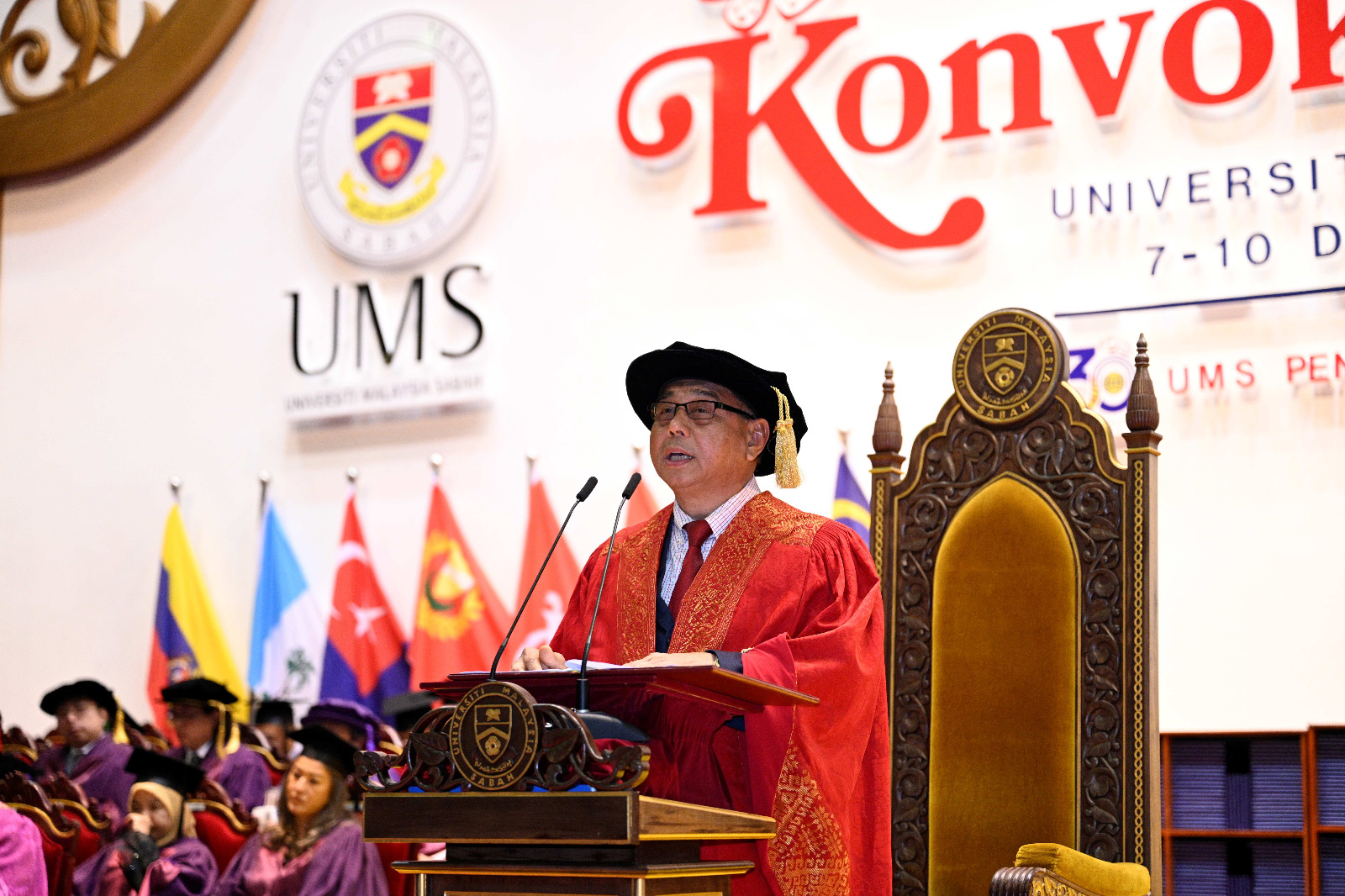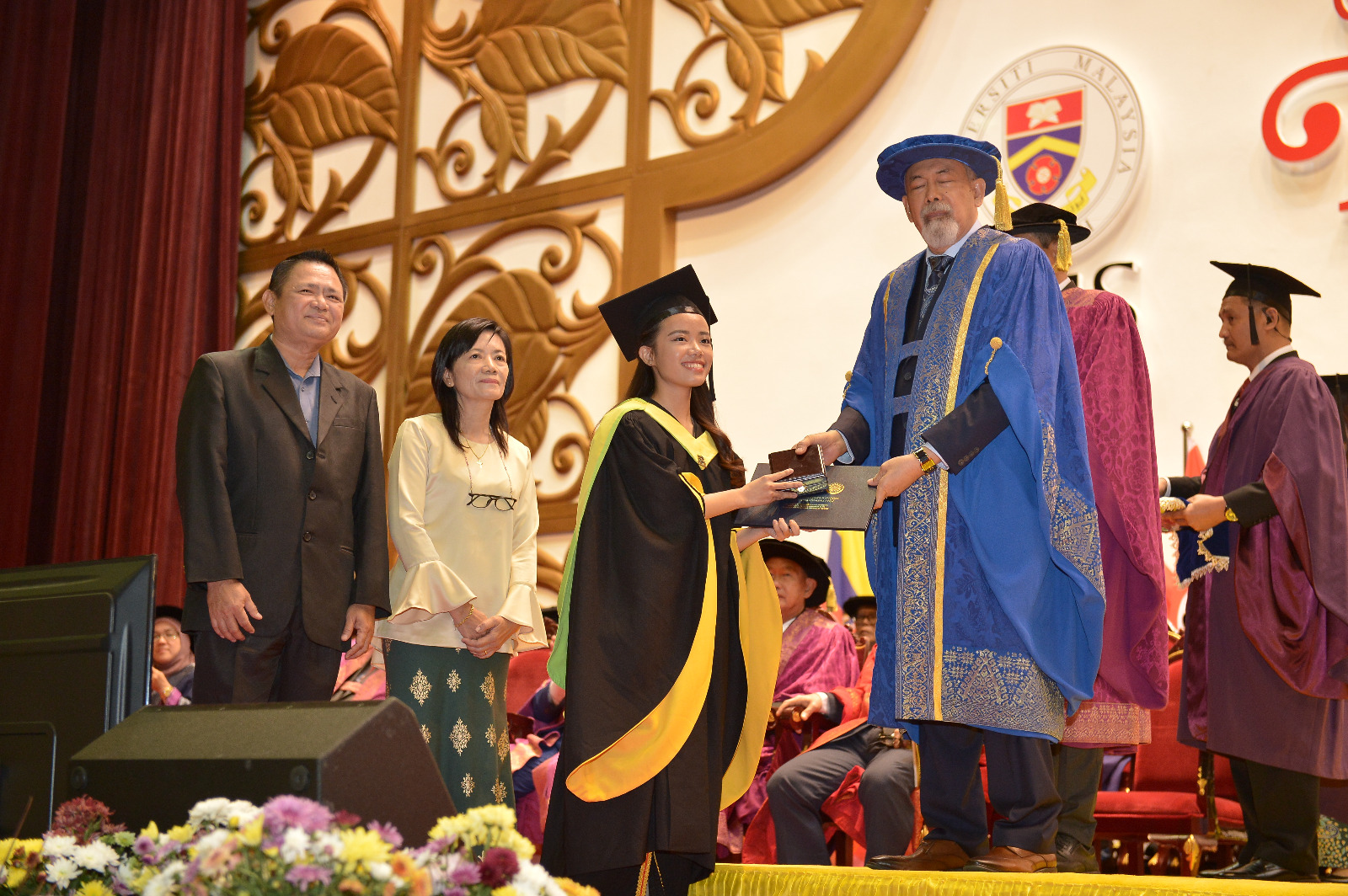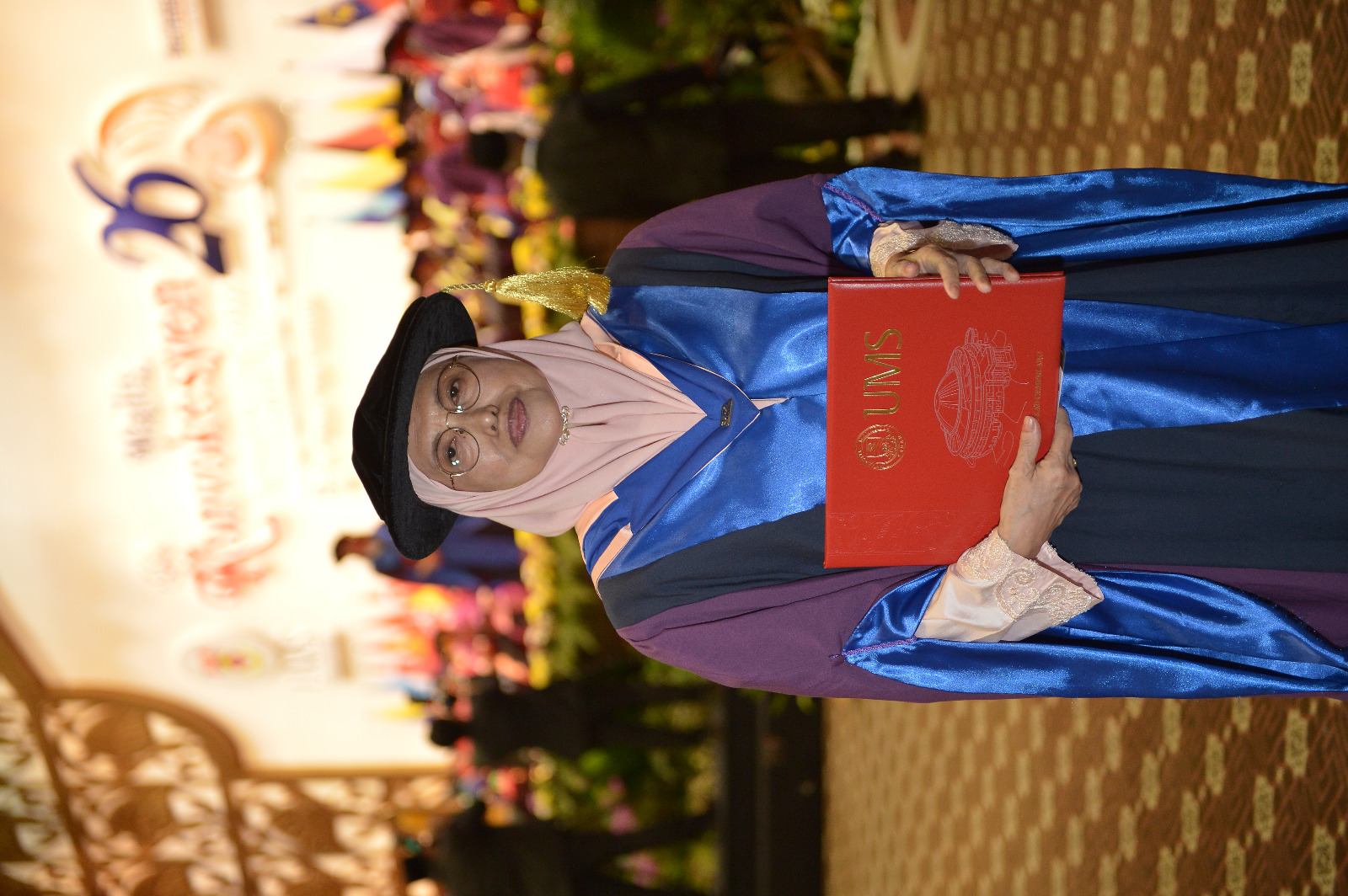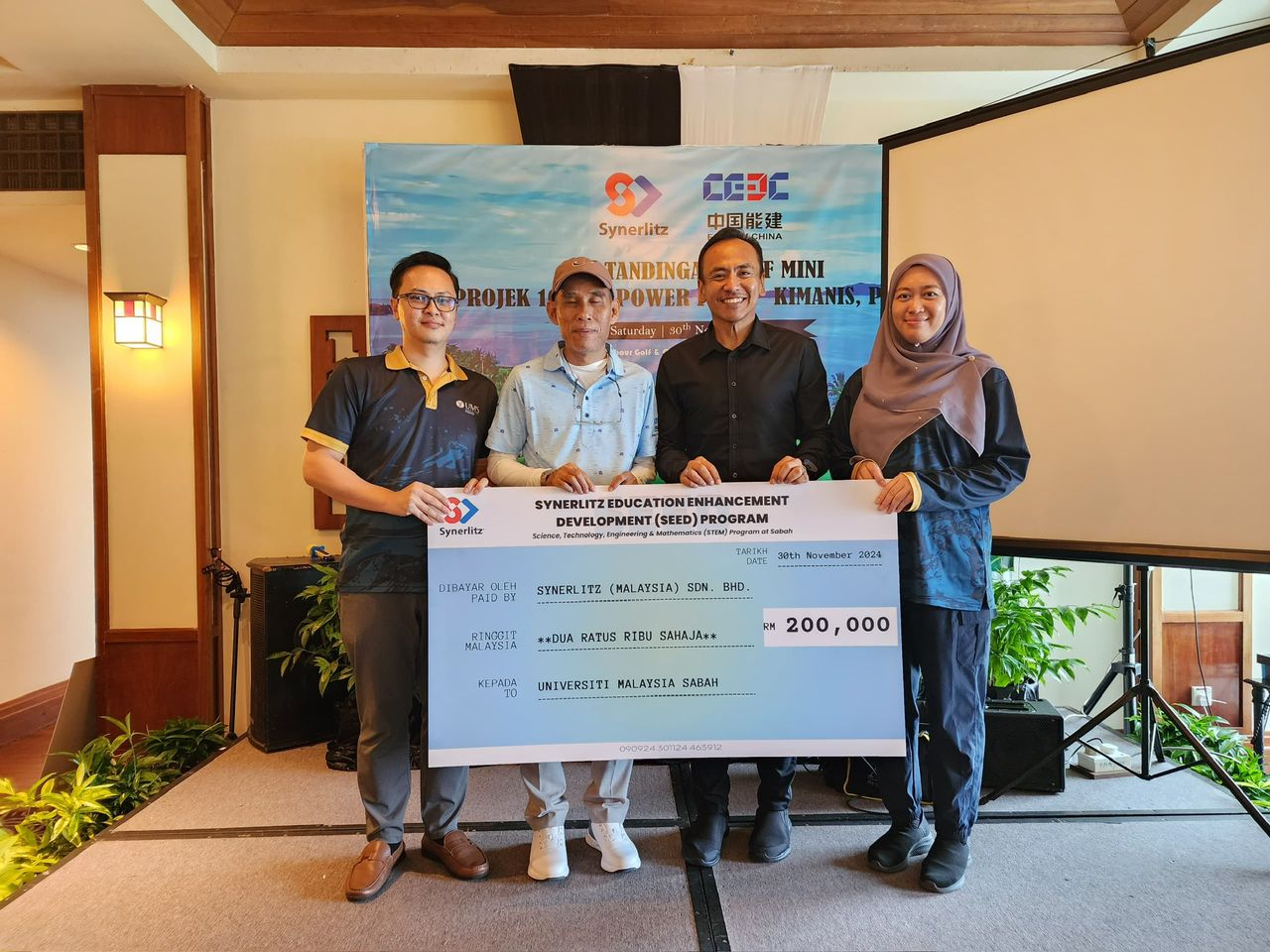 Universiti Malaysia Sabah (UMS) has produced some 91,915 graduates, including 4,493 who will receive their degrees and diplomas during the university’s 26th convocation ceremony from Dec 7 to Dec 10.
Universiti Malaysia Sabah (UMS) has produced some 91,915 graduates, including 4,493 who will receive their degrees and diplomas during the university’s 26th convocation ceremony from Dec 7 to Dec 10.
Vice-Chancellor Prof Datuk Dr Kasim Mansur said this year’s graduating cohort comprises 119 doctorate, 335 master’s degree, 124 postgraduate diploma, 3,826 bachelor’s degree and 53 diploma recipients. It marks its 30th anniversary this year.
“Today’s celebration is a testament to the education provided by UMS, which not only emphasises academic excellence but also nurtures essential soft skills for daily life.
He highlighted the university’s consistent improvement in graduate employability rates, with 98.5 per cent of graduates securing employment in 2023 — an increase from 98.3 per cent in 2022 and 96.2 per cent in 2021.
Kasim said UMS has also garnered significant accolades recently. On Nov 27, 2024, the university received the Top Public Higher Education Institution award at the Talentbank Graduates’ Choice Award (GCA) ceremony.
Additionally, on Dec 3, 2024, UMS was honoured with the Huawei ICT Competition Academy Award, while Dr Tan Soo Fun from the Faculty of Computing and Informatics received the Most Dedicated Instructor award.
“UMS functions as a catalyst for social and economic development in Sabah through efforts to develop rural communities, and disadvantaged children, as well as focusing on social and economic issues faced by local communities, including cultural preservation local ethnic groups, environmental conservation and biodiversity research.
“Not to forget, environmental sustainability efforts in Sabah, especially those related to maritime, biodiversity and tropical rainforest conservation also show UMS’s commitment in uplifting the local community and solving critical social issues,” Kasim said.
Aligned with the Malaysian Education Development Plan (Higher Education) 2015–2025 and the E-Learning Policy, Kasim said UMS has expanded access to education through its Flexible Learning Centre (UMSFLEC).
He said by implementing Open and Distance Learning (ODL) methods such as Open Educational Resources (OER), Open CourseWare (OCW) and Massive Open Online Courses (MOOCs), UMS continues to promote lifelong learning.
“The Labuan Faculty of International Finance (FKAL) further enhances UMS’s reputation as a hub of innovation and a driver of positive societal change.
“Through the UniMADANI programme, the university has implemented impactful community projects in Labuan, such as the Mushroom Cultivation Project in Kampung Sungai Bedaun, the Kebal Cake Project in Kampung Kilan, the Projek Ayam Penelur in Kampung Pohon Batu and the Projek Bagang Ikan Bilis in Kampung Pantai.
“The Faculty of Food Science and Nutrition also continues to excel in research and innovation, contributing significantly to UMS’s legacy of academic and societal impact,” he said.
As a symbolic celebration of UMS’s 30th anniversary and the Convocation Ceremony, Kasim along with 30 UMS staff and students successfully conquered Mount Kinabalu through the UMS Lambang Puncak Jaya Program.
“This programme aims to show how UMS people from diverse backgrounds together face various challenges to achieve excellence and recognition at its peak,” he said.



 Twenty-four-year-old Conservation Biology graduate from Sabah dedicated her Royal Academic Award to the unwavering support from her parents.
Twenty-four-year-old Conservation Biology graduate from Sabah dedicated her Royal Academic Award to the unwavering support from her parents. Universiti Malaysia Sabah (UMS) has its oldest graduate receiving a Doctor of Philosophy (PhD) degree, at 74-years-old, during the state university’s 26th convocation ceremony
Universiti Malaysia Sabah (UMS) has its oldest graduate receiving a Doctor of Philosophy (PhD) degree, at 74-years-old, during the state university’s 26th convocation ceremony 
 Universiti Malaysia Sabah (UMS) received RM 200,000 contribution for the implementation of research projects and the promotion of Science, Technology, Engineering, and Mathematics (STEM) by the university.
Universiti Malaysia Sabah (UMS) received RM 200,000 contribution for the implementation of research projects and the promotion of Science, Technology, Engineering, and Mathematics (STEM) by the university.